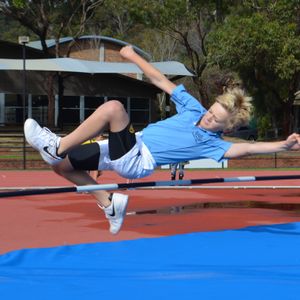Kids Losing It! Or Managing It! - Supported for Success
Strategic Direction: Towards 2028
At Mosman Prep, we believe that every child wants to succeed. As educators and adults, it is our responsibility to support development of the skills they need to achieve success.
In my primary school years, I can recall half a wooden blackboard compass, inscribed with the word ‘stinger,’ perched at the front of the class as a measure for controlling behaviour. Stinger and I met personally a few times!
While corporal punishment in schools is a thing of the past, detentions aimed at deterring negative behaviour, and stamps, stickers, and lucky dips to elicit positive behaviour are still widely used. However, over the years (following research), attitudes towards behaviour support have changed significantly, with a rethink about the effectiveness of ‘punishment and discipline’ and extrinsic rewards in shaping or modifying behaviour.
“The essential function of challenging behaviour is to communicate to their adults that a kid doesn’t possess the skills to handle certain demands in certain situations…The long-term answer to a kid not caring about your concerns is to care more about his.”
“The reality is that well-behaved students aren’t behaving themselves because of the school discipline program. They’re behaving themselves because they have the skills to handle life’s challenges in an adaptive fashion.” - Ross W. Greene
At Mosman Prep, we have been using the Collaborative & Proactive Solutions (CPS) Model for the past 3 years. CPS is an evidence-based approach for understanding and helping kids with concerning behaviours, as described in Dr. Ross Greene’s books The Explosive Child, Lost at School, Lost and Found, and Raising Human Beings.
The approach sets forth two major tenets.
- The reason some kids respond maladaptively (badly) to problems and frustrations is that they’re lacking the skills - especially in the realms of flexibility/adaptability, frustration tolerance, emotion regulation, and problem solving - to respond adaptively.
- The best way to reduce concerning behaviours is by solving the problems that are causing those behaviours. The problem solving should be collaborative (something that’s being done with the child rather than to them) and proactive (rather than reactive).
“CPS works by asking the kid what’s making it hard to meet particular expectations; asking adults (parents and teachers) what their concerns are and why they think it’s important those expectations are met and then getting the kid and adults to collaborate on a solution that addresses the concerns of both.” - livesinthebalance.org
At Mosman Prep, we aspire for every person in our community to be healthy in all dimensions. Our comprehensive approach is built on the knowledge that as individuals we learn and grow best when we are safe, healthy and connected. Supported by our School Values, our wellbeing framework aims to promote positive and productive relationships within an inclusive learning community. We believe a healthy community is a serving community, where we find joy in living a life beyond ourselves (Mosman Prep Wellbeing Statement).
An education built on a foundation of relationship, understanding, trust and respect, allows our boys to engage freely in and to love learning, to make mistakes, to have a voice, to achieve success and mastery, and to develop their confidence, independence, and ultimately ownership of their ‘learning journey’.
Peter Grimes | Headmaster


















